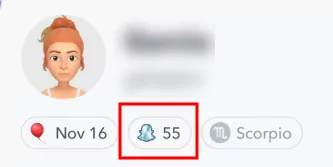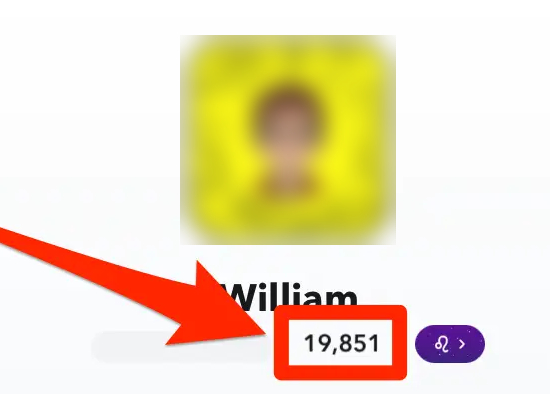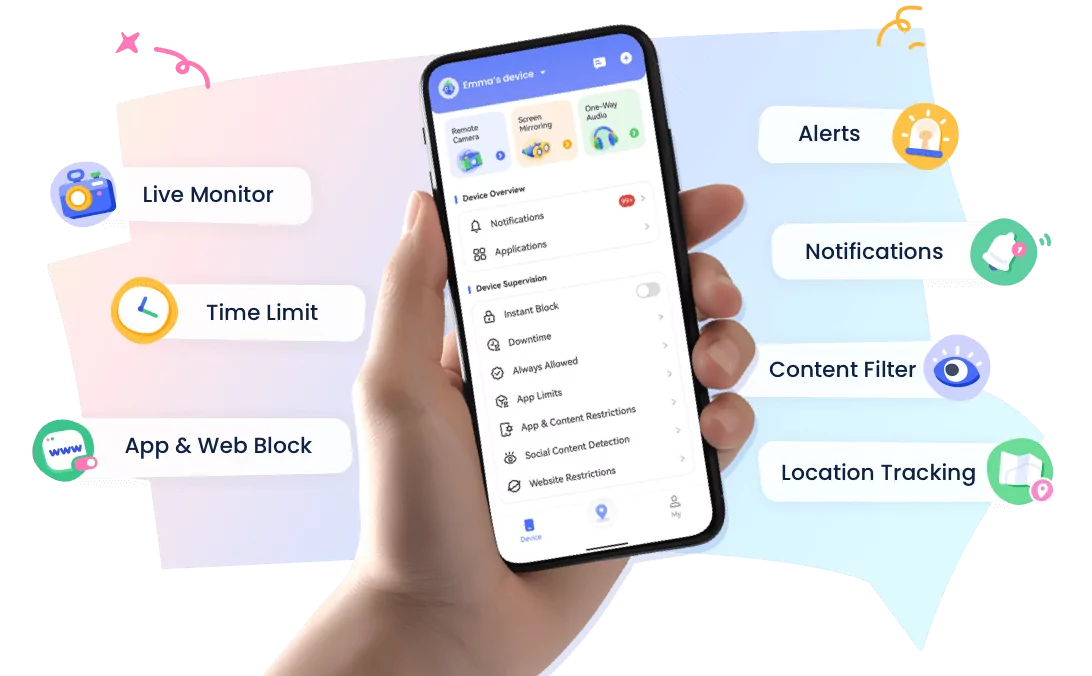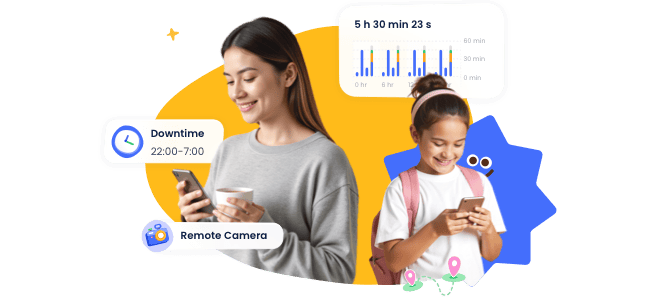How to Know If a Snapchat Account Is Fake? [Guide 2025]
Scamming and catfishing are common on social media, including Snapchat.
Fake profiles might send overly polished snaps or claim to be someone you know, but something feels off. These accounts can lead to scams, privacy breaches, or worse. Whether it's a fake influencer, a hacked friend's account, or a stranger with a hidden agenda, it's crucial to know how to spot them.
So, how to know if a Snapchat account is fake? Read on for tips.
9 Methods to Spot Fake Snapchat Accounts
1. Profile Info
When adding someone new on Snapchat, it's natural to wonder if they're genuine. A real Snapchat profile typically includes:
- Profile Picture: A real account usually has a clear, personalized photo. If the picture looks generic or overly polished, it might be a fake.(We'll detail this later.)
- Username: Authentic users often have unique usernames. Be cautious of random or overly complex names.
- Bio Information: Check if their bio includes specific details, such as their city, hobbies, etc. Vague or empty bios should be a red flag.
- Snapcode and Bitmoji: Don't forget personalized Snapcodes and Bitmojis. If these are missing or look standard, the account might not be genuine.
- Story Content: Real accounts share personal and updated stories. If the stories seem copied from elsewhere or are rarely updated, it could indicate a fake account.(We'll detail this later.)

2. Profile Picture
Whether it's a casual-looking personal photo or a professional-looking image, be aware that it could be a stock photo. After all, scammers could have stolen someone else's selfie from another platform and used it as their profile photo.
Ideally, you can use Google's reverse image search to check if the photo is original. However, since there's no direct way to download public profile photos from the app, your best bet is to take a screenshot of the image and then upload it to Google's reverse image search.
But it's not foolproof. Some people deliberately avoid using their real profile picture, opting for animal photos or anime characters instead, like the one shown below. So, this method won't always be helpful.

3. Snap Score
If someone claims to be famous or a Snapchat influencer, check their Snap Score. If it's surprisingly low, don't ignore that red flag.

If you understand how Snap Scores work, you'll know that a lower score usually indicate minimal interaction with other accounts since the profile was created. If someone has been on the app for years but has a low score, it suggests they haven't engaged much with others.
While there is no standard for what constitutes a high or low Snap Score, genuine influencers typically have higher scores due to regular interactions. So, an unusually low score may mean the account isn't who they say they are.

4. Account Activity
Authentic users usually share a mix of Stories and Snaps that give a glimpse into their daily lives (if their content is public), and the people who show up in these posts tend to be the same.
On the flip side, fake accounts often post very little or hardly anything at all. When they do post, their content is all over the place—different people, different settings, and sometimes it looks like they’re just reposting stuff from elsewhere.
So while this isn't a surefire sign, it's definitely fishy if their public content keeps changing dramatically.
5. Verification Questions
If someone pretends to be your relative or your old friend, must ask them verification questions.
Without making it obvious, ask them simple questions, maybe about an event you both attended or any childhood activity you both did together.
If they seem hesitant or confused, it's a clear sign, they don't know you. You'll get the answer in seconds after talking to them about old memories and asking them a few questions in between.
6. Mutual Friends
It doesn't matter how many friends an account has; if there's no mutual connection, don't hit 'accept' too soon.
Any account can add random people, but only real friends or close family members will have mutual friends and connections.
If that account claims to be a friend of someone from your friend list, let them know and verify if that's real or not.
Also, if you don't want to bother your friends, check the stories or snaps posted by this new friend to see if there is any interaction with a mutual friend.
7. Attitude
If everything seems too fast, you must give a second thought to this friendship.
Real friends take their time to build a connection, but scammers and catfish are often eager to rush conversations and build trust quickly. They might shower you with compliments or express strong feelings soon after making contact.
Don't entertain any account that is too pushy or eager to know you or ask for a favor—especially if they request money or sensitive information. Trust your instincts: if something feels off or too good to be true, it probably is.
8. Behavioral Clues
Spotting fake Snapchat accounts includes taking a close look at how they interact with you since their behavior often doesn't match that of normal users. If someone sends lots of strange messages, or links, or asks for money or your location, it might be a fake account.
In addition, accounts that avoid real-time interactions, such as voice calls or video calls, and are in favor of scripted or immediate responses are often indicative of impersonators or bots. Users who are genuine usually engage in more spontaneous and varied communication.
Also, don't let them know your location, and avoid clicking all the spamming links they send you.
9. Location Consistency
Snap Map is a handy tool for checking if a Snapchat account is real. It shows real-time location data, making it easy to verify if someone's claimed whereabouts match up.
If an account regularly shows location mismatches where the Snap Map data doesn't line up with what they say, it's a big red flag. These inconsistencies can hint at deceptive intent, especially if the account is always missing from the map while claiming to be in different places.
What to Do If You Spot a Fake Account?
After coming across a fake snap chat account you can take the following crucial steps to keep your account and private information safe:
| Blocking |
|
| Adjust Your Privacy Settings |
|
| Alert Contacts |
|
| Document Evidence |
|
| Reporting |
|
Why You Should Care about Fake Snapchat Accounts?
Fake Snapchat accounts can pose risks to your privacy, security, and emotional well-being. They often scam and manipulate. So, let's take a look at some common Snapchat scams.
- Romance Scams
Romance scams happen when someone pretends to be a famous person or someone you like and says they love you after chatting for a bit. If you believe them, they might ask for gifts, money, or private details.
- Account Appeal Scams
A user on Reddit shared this scam: The scammer will contact you and claim they've "falsely reported your account," saying you need to change your email address to appeal the report. If this happens to you, don't do it. Snapchat won't ask you to change your email for this.
- Imposter Scams
Anyone can scam you after claiming to be your long-lost friend or close relative. After emotionally manipulating you, scammers can either create a family emergency and ask for funds, or a simple 'Special Opportunity' message can plunder your money.
- Money-Making Scams
Don't believe in get-rich-quick schemes. Ignore stories about turning $200 into $20,000 or people who promise big returns for a small fee. If it sounds too good to be true, it probably is.
- Phishing Scams
Hackers send fake emails or texts that look like they’re from Snapchat. They’ll say things like your account was hacked, you won a prize, or you’ll get special content. But the link in the message takes you to a fake site to steal your login details. Once you enter your info, the scammers can access your account.
- Adult Content Scams
Fake accounts promise exclusive adult content for a subscription fee. But after you pay, they block you and disappear. Some even ask for your bank details to "auto-renew" the subscription, but they just drain your account instead.
- Survey and Contest Scams
They might pretend to be celebrities, influencers, or businesses and say you can win prizes like gift cards if you pay to enter a contest or complete a survey. But there's no real contest. Sometimes, the survey links lead to shady websites that steal your personal info or put malware on your device.
Bonus: Detect Who Added Your Child's Snapchat Account
Kids can be at risk of online scams just like anyone else. They might not know how to spot these scams, making them easy targets.
So, how can parents keep an eye on who their kids are adding on Snapchat? Try AirDroid Parental Control.
With this app, you can see your child’s Snapchat activity. It sends you alerts when your child adds or accepts new friends. This way, you’ll know who they’re interacting with and can help keep them safe.
Final Words
So, how to know if a Snapchat account is fake or real? It's pretty simple. Just talk to them randomly and ask questions about any past event or memory you both have together. Scrutinize their account and note anything you find shady.
Then, block and unfriend that user immediately before things take an unexpected turn.














Leave a Reply.